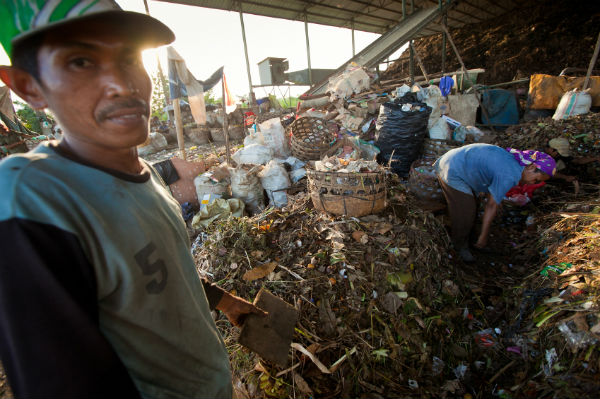In order to recycle in the U.S., residents gather their plastic, paper, cardboard, etc. and take it to the curb once a week for pick-up or drop it off at a local recycling center. This process makes recycling easier for residents, but it doesn’t work this way all over the world. In Cairo, people called “garbage dwellers” are reducing the city’s trash and sustaining their livelihood in the process.
According to
PBS, the population of greater Cairo is 17 million, and 13,000 tons of garbage is thrown away in the region every day.
In this part of the world, residents don’t sort their trash or take it to the curb for recycling. Instead, people from southern Egypt known as the
Zabbaleen, or “garbage dwellers,” take it upon themselves to recycle and earn a living by collecting trash.
Zabbaleen are mostly Coptic Christians and receive stigma from the Islamic population for their unofficial role. Some homeowners allow them to go door to door and
collect the garbage for a small fee or for free.
In addition to collecting the city’s garbage, they raise pigs and feed them the viable organic waste. In 2009, when swine flu broke out, the city ordered all pigs to be killed. This didn’t help to avoid the flu epidemic, but it showed how important the pigs were in the management of organic waste.
In the
Garbage City right outside Cairo, trash is sorted, recycled, sold for cash and burned for fuel. For years, the Zabbaleen used donkey carts to transport the garbage, but now these people rely on small trucks to move the trash to
Medina Zabbaleen, or “Garbage City,” where it’s sorted.
From the collectors’ homes to the city’s rooftops, space is designated for sorting trash — 80% is recycled while the rest is sold or reused to make items like rugs and carpets. It’s quite an operation, and the Zabbaleen’s efforts help keep the streets of Cairo clean.
Despite the fact that a formal recycling system isn’t set up in this city, it’s admirable that the Zabbaleen are stepping up to accept this challenging role. It’s helping them make a living and providing them with job security in a tough economy, but the lack of regulations makes this job dangerous and potentially damaging to the environment. The
stench of waste on the streets of Cairo causes air pollution, and children even as young as 4 years old are subjected to this public health crisis.
There is a long way to go in order to transform this production into a more regulated waste management, and the Spirit of Youth Foundation has started by
licensing garbage workers in Cairo.
Efforts to give garbage a new purpose aren’t just limited to the city. Even in rural areas like the Sinai Peninsula there is an eco-lodge, which was started in the 1980s by Sherif El Ghamrawy. This lodge is designed from recycled and recyclable materials, and it has peaked tourism as well.
Creating waste is an ongoing byproduct of humanity, but the Zabbaleen show how rewarding and profitable waste management can be.


